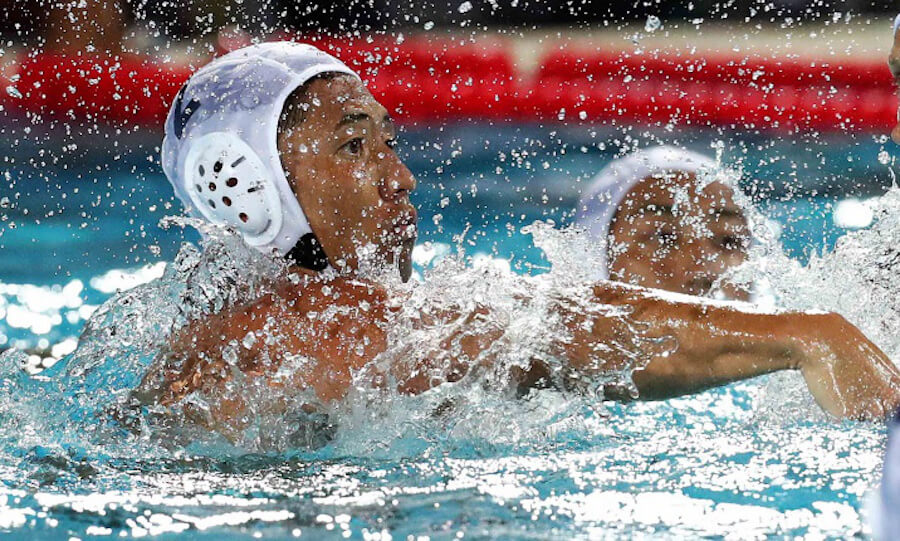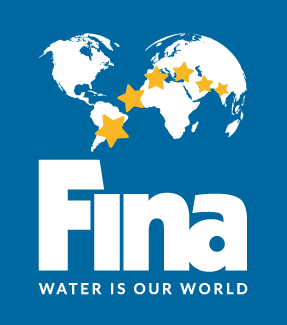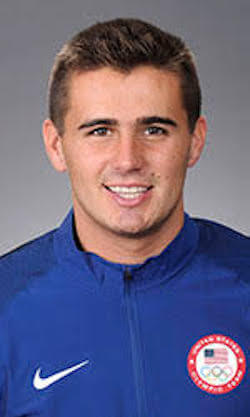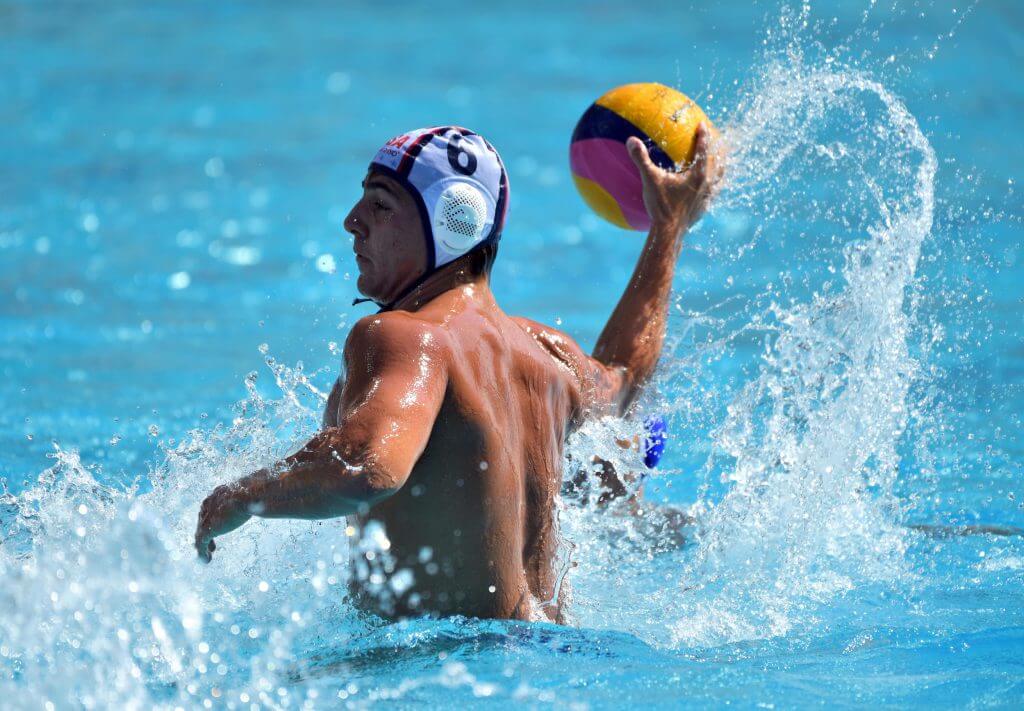Ghosts of Futures Past: US Men’s Water Polo Falls to Japan in FINA World League Quarterfinals

By Michael Randazzo, Swimming World Contributor
A year ago Japan tagged the U.S. Men’s Senior National Team with one of the worst losses in program history, a 15-7 defeat at the 2017 FINA World Water Polo Championships. Not only was it the American’s first-ever loss to the Japanese, it led to an embarrassing 13th place finish (out of 16 teams) at FINA Worlds.

Now, Japan can claim two wins over Team USA, though yesterday’s 11-10 loss in the quarterfinals of the 2018 World League Super Final stings perhaps a little more than last year because it ended what had been a brilliant run by the Americans.
Despite not winning a match in pool play—and being outscored 39-22—the Japanese advanced to a semifinal match today against host Hungary, which knocked out Croatia 10-8 on penalty shots. The U.S will again face the Croatians—who they beat 11-10 on Wednesday—in the losers bracket. Following an impressive start, the best the Americans can hope for is fifth place, which hardly seems conceivable after a 3-0 run in pool play had them poised for a great run in the medal round.
A young team’s inexperience shows
That the Japanese were highly competitive against their American counterparts comes as no surprise. The two teams had faced each other in April at the FINA Intercontinental Tournament in New Zealand, with the U.S. emerging with a 12-10 win behind hat-tricks from a pair of Alexes: Bowen and Obert. If one excludes four-time Olympian Jesse Smith from their roster, the American’s average age is 22, with two teenagers—Marko Vavic (19) and Hannes Daube (18) in the mix.
Their inexperience was not a factor in its first three matches in Budapest, but Thursday in the Duna Aréna, the Japanese were able to exploit a youthful U.S. roster from the game’s opening minutes. Seiya Adachi, who last summer exploded for seven goals against the Americans, opened the scoring a minute and a half in when he got inside Johnny Hooper and threaded a shot past goalie McQuin Baron. A minute later, Kohei Inaba, another veteran on Head Coach Yoji Omoto’s squad, converted a wide-open opportunity to put his team up 2-0.

Ben Hallock of USA Water Polo
The fast start was reminiscent of the blowout loss at FINA Worlds last year—until Ben Hallock got untracked. At a bruising 245 lbs, there’s no Japanese defender big enough to counter the rising Stanford sophomore’s size and strength. Hallock hit on back-to-back goals to even the score at two. When Luca Cupido slammed home a nice feed from Max Irving with their team a man-up, the U.S. closed out the quarter with a one-goal lead.
But there were clear signs of trouble. First, the Americans were whistled for four exclusions in the period while the Japanese were penalized only once. Second, Obert missed on a great chance in front, one of a number of squandered opportunities by Dejan Udovicic’s squad.
Japan’s Mitsuaki Shiga tied the match on his team’s first possession of the second period, again getting free on the counter. Hallock and Hooper then scored to put the Americans up by two. But exclusions began to take a toll on the U.S.; Keigo Okawa, Atsushi Arai and Inaba converted on three straight power-play opportunities, offsetting a goal by Obert to make it 6-all at the half. Baron was effective in the U.S. cage, registering nine saves, but his teammates’ inability to stay out of foul trouble would prove to be a difference-maker for the Japanese.
Third period proves decisive
A power-play goal by Irving two minutes after intermission—the American’s last lead of the match—was equaled by Okawa’s counter-attack score at 3:31. At the two-minute mark, Hallock fired wide on a beautiful chance in front of goal-keeper Katsuyuki Tanamura; when the Japanese had a similar opportunity they did not miss. With 40 second remaining in the period Keta Araki gave Japan an 8-7 lead with a tip-in on the power-play.

Luca Cupido, Photo Courtesy: Robert Hanashiro-USA TODAY Sports
A minute and a half into the final period, Harukiirario Koppu got behind the U.S. defense to again give his team a two-goal advantage, but this spurred a great comeback by the Americans. At the six-minute mark, Cupido scored on a 5M penalty. After another goal on the counter, this one by Arai, Bowen—who scored five goals the day before against Croatia—finally got on the scoring sheet at the five minute mark with blistering shot. A minute later, Hallock tied that match at 10-all with his fourth goal of the game. But that was it for the Americans.
With time running out and his team again enjoying the man advantage—the Americans were called for 16 exclusions—Adachi book-ended the scoring. His skip shot at 1:39 deflected off of two defenders before handcuffing Alex Wolf, a fourth quarter replacement in the U.S. goal, for the match’s decisive goal.
As bitter a pill as this latest loss to Japan is for Udovicic and his team to swallow, there’s no doubt that this year’s experience in Budapest has been far better than last. A young U.S. squad is clearly improving, and—with patience, practice and additional international matches—will likely prove that Team USA is on the right track for a berth at the 2020 Tokyo Olympics.




They beat Croatia and lost to Japan?
Dear Daniel:
I suppose you hit the proverbial nail on the head BUT I’d say there are some considerations here. First, Japan is just a bad match-up for an inexperienced team, which is what Team USA is. They counter extremely well, they draw fouls and they’re relatively efficient with their scoring opportunities (though not yesterday). The U.S. had a huge advantage because of Hallock—and he scored four times—but there were a handful of opportunities in front of the Japanese goal that Udovicic’s players (not just Hallock) failed to capitalize on.
Croatia has a great squad but they clearly had issues—they lost three times in the tournament. So, the U.S. win was BIG but should be looked at with a bit of perspective.
Having said all this, I’m chalking this up to a HUGE learning experience for the Yanks. They did so many things well in Budapest that it’s not fair to judge them solely on an extremely competitive loss.
Your correspondent